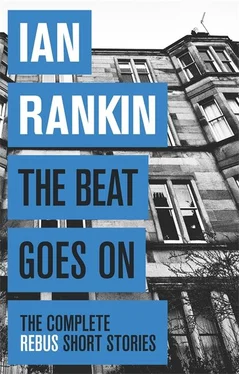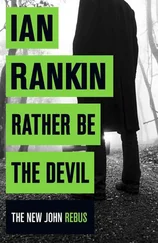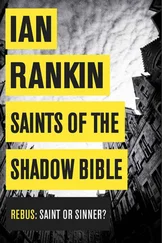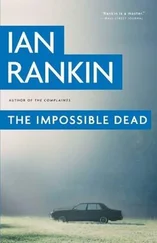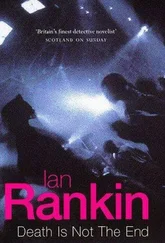‘We could never sell it, not after that. We never meant...’ She broke off, took a deep breath. ‘We didn’t stop to think.’
‘You were just a girl, Martha. How were you supposed to know it wasn’t a game, some sort of joke? But Colin was that bit older than you... old enough to know exactly what he was doing. More than half a century Lionel’s been kept shut up.’
‘It would have happened anyway,’ she said in a whisper, a tear trickling from one eye. ‘We couldn’t have coped. He was driving our parents demented... nice as ninepence one minute, flying off the handle the next. Schizophrenic, the doctors said. He was turning us into pariahs.’
‘You mean the local kids called him names?’
‘Not just Lionel... all of us. We were “the weird ones”, “the loonies”.’ She wiped a hand across her face. ‘Do you know how much he’s cost us? All the family money, soaked up by care for Lionel.’
‘Soaked up by guilt, if you ask me. That’s why neither of you could let the painting go.’ He rose to his feet. ‘All these years...’ He let the words hang in the dusty air. His whole body felt dried out by this house, as if the life were being drained from him.
‘What will happen to us?’ she asked, her voice trembling.
‘Lionel’s not going to be in that home much longer — nobody is. So you’ll offer him a room here, with his painting above his bed. And if you die before him, you’ll make sure the painting goes to him.’
She looked up. ‘That’s all?’
Rebus offered a shrug. ‘Anything you’ve just told me, Colin will deny — he’s got too much to lose. I’d be delighted to see the pair of you in court, but I don’t think that will happen. I could dig into your parents’ wills, any changes in them, see if the painting was to be Lionel’s at any stage, but I’m not sure I’d get anywhere. So... yes, Miss Waters, that’s all.’ He started to walk towards the door, but paused.
‘You could own up, of course, tell Lionel what the two of you did. But I wouldn’t, if I were you. It might be too much for him. So don’t think of letting Colin near him... and pray Lionel stays in good health, because if I hear otherwise... well, I might have to do that digging after all.’
The Suruchi restaurant was Rebus’s idea — and his treat.
‘Felt I short-changed you last night,’ he explained to Siobhan.
After ordering their starters and main courses, they snapped off pieces of poppadom from a central shared plate, dipping them in chutney and biting down on them.
And Rebus told his story.
‘Amazing,’ she said as he finished. He was drinking lager for a change, while she stuck to mineral water. ‘But you’re not going to explain it all to Lionel?’
‘Even if I got through to him, would it change anything?’
‘His whole life’s been...’ She couldn’t quite find the right words.
‘How does that old song go? “If I could turn back time...” If I could, believe me, I would.’
‘It would be handy,’ she conceded. ‘We’d solve the crimes before they were ever committed.’
‘Didn’t do Tom Cruise much good in that film.’ Their waiter had appeared at the table to clear away the empty plate. Siobhan brushed crumbs from her lap. ‘Something else I did today,’ Rebus was adding.
‘What?’
‘Solved Ken Flatley’s little mystery.’
She looked at him. ‘Who’s been a busy boy then?’
He shrugged. ‘Easy enough once I remembered the face driving the meat van. Belongs to a guy called Bernie Cable. I arrested him once at Ingliston Market.’
‘A Trading Standards bust?’
Rebus nodded. ‘Cable was selling dodgy meat from a van.’
‘Is this something I should be hearing prior to dinner?’
‘Chicken breasts past their sell-by... that sort of stuff.’
‘And now he’s selling meat to care homes?’
‘Until today he was. I’ve been on to Environmental Health... the council... Trading Standards.’
‘You have been busy.’
‘That’s not the half of it. When I asked the Records Office to look up Cable, I gave them Donald Morrison’s name too.’
‘That suspicious mind of yours.’ Siobhan leaned back as a clean plate was placed before her. Another waiter stood ready with orders of pakora and kebab.
‘It was the way Morrison addressed me,’ Rebus explained. ‘He kept calling me “Inspector”, even though I’d made it clear I wasn’t there in any official capacity.’
‘And that got your antennae clicking?’
‘Made me think I might not be the first cop he’d ever had dealings with.’
‘And?’
‘And his name’s not really Morrison — that’s one of his many aliases. Real name’s Charles Kirkup. He’s been done for fraud.’
‘You reckon he was in cahoots with Cable?’
‘I contacted the hospital about those poor old sods who died. Food poisoning didn’t show up on the original autopsies, but they’re going to check again. It’s like Ken said: the pathologists aren’t always so rigorous when the corpse was on its last legs anyway.’
‘So he was right, after a fashion?’
Rebus nodded.
‘And you’ve told the council this?’ Another nod. ‘So now he’ll be closed down?’
‘Bound to be.’
‘And where will Ken go?’
‘I told him you had a spare room.’ Rebus bit into a kebab.
‘I’ve got a better idea,’ Siobhan said, spooning sauce over her pakora. ‘Colin Waters will know an investment when he sees one. He could keep the place open, maybe just promote one of the staff to manage it.’
Rebus saw those hazel eyes again. ‘And why would he do that?’
‘You could tell him there’s a Gainsborough resting on it,’ Siobhan said coyly. ‘And after all, if he owns Renshaw House, he won’t have to pay for Lionel’s care any more. I’m sure you could get Martha to argue your case for you.’
Rebus was thoughtful. ‘Maybe I could at that.’
‘Atonement, I think it’s called.’
‘Whatever it’s called, I’ll drink to it,’ Rebus said, raising his glass.
Not Just Another Saturday
It had taken Rebus longer than usual to get to the barber’s shop on Rose Street. He’d known about the Make Poverty History march, of course; just hadn’t reckoned with the barriers going up so early. Melville Drive had been filling with buses from all over: church congregations from Derbyshire; anti-nuclear pensioners; African drummers; Fair Trade and Christian Aid and Water Aid and Farm Aid... everything but the one thing Rebus needed — Lucozade. He’d only drunk four pints the previous night, but one of them must have been bad.
There was a stage erected on the Meadows, along with tents and vans preparing to sell food to the hungry masses. Someone was doling out Palestinian flags. The Sunday Mail had provided placards saying ‘Drop the Debt’. People were dropping the placards instead, then tearing off the newspaper’s name before picking them up again. Maybe they were southerners, confusing the Scottish paper with its near-namesake. Rebus was handed a plastic carrier bag. Inside he found a Help the Aged T-shirt. First kid he saw, he passed the bag along. He knew George IV Bridge would be impossible, so headed for South Bridge instead, feeling like a salmon swimming against the prevailing current. Families passed him, the kids with their faces painted. People were smiling in the sun, ready to be seen if not heard. At Fettes HQ, the High Hiedyins had guessed 175,000, but to Rebus it looked likely there’d be more: 200, maybe 250. A quarter of a million people, more than half the city’s population. Scale it up, it became four million on the streets of London. Maybe that was why everyone was smiling. They had no need to shout. Their very presence would be louder than that.
Читать дальше
